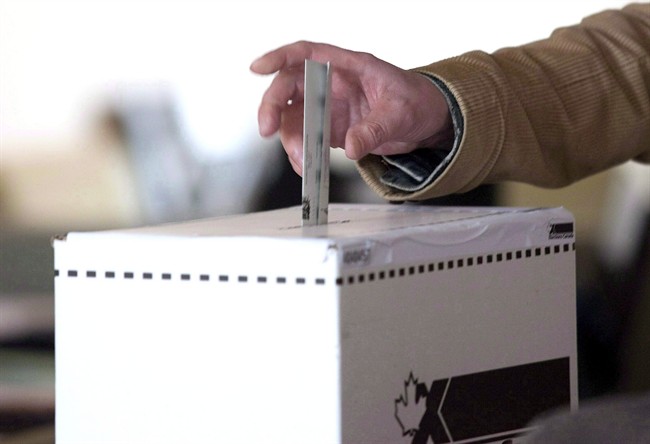We’re getting a better sense of next year’s planned referendum that could change the way British Columbians elect their politicians.

On Wednesday, B.C.’s NDP government tabled legislation gearing up for the electoral reform referendum slated to take place next fall.
“This bill provides the legislative framework for the conduct of a province-wide referendum in fall 2018 on whether to change from the ‘first-past-the-post’ voting system to a form of proportional representation,” said Attorney General David Eby.
Proportional representation refers to a family of voting systems in which the number of seats a party gets in the legislature is tied to the percentage of the popular vote they win.
However, the referendum on a new system will not come along with next October’s municipal elections as had initially been planned.
Eby said the new plan, involving mail-in ballots, was necessary because of differences between provincial and municipal voter lists.
“It’s a different group of people, which would require the hiring of additional staff, and some areas don’t have municipal elections on the same cycle,” he said.
“When you put that all together it would look like we were spending about the same as a free-standing in-person vote, which is significantly more expensive than a mail-in ballot.”

Get breaking National news
WATCH: Justin Trudeau explains why he’s backtracking on electoral reform

The Electoral Reform Referendum Act lays out the terms under which the vote will be held.
Voters will submit their ballots by mail, and the initiative will be considered to have passed with a “yes” vote of 50 per cent plus one.
In that circumstance, the new voting system will be put in place for the 2021 provincial election.
Regardless of the referendum outcome, any provincial election before 2021 would be held under the current system.
What remains unclear is what electoral system is being proposed as an alternative to the current model and the wording of the question voters will be asked.
The bill introduced today allows for more than one question on the ballot, with voters able to rank their preferences for the voting models available.
Estimates on the cost of the referendum or the transition to a new voting system were also not available.
In the coming weeks and months, the province will engage British Columbians in a public campaign that will include education on alternative voting systems, Eby said.
The government also introduced legislation on Wednesday that moves B.C.’s fixed election date from the spring to the fall, and reduces the number of seats needed for official party status in the legislature from four seats to two.











Comments